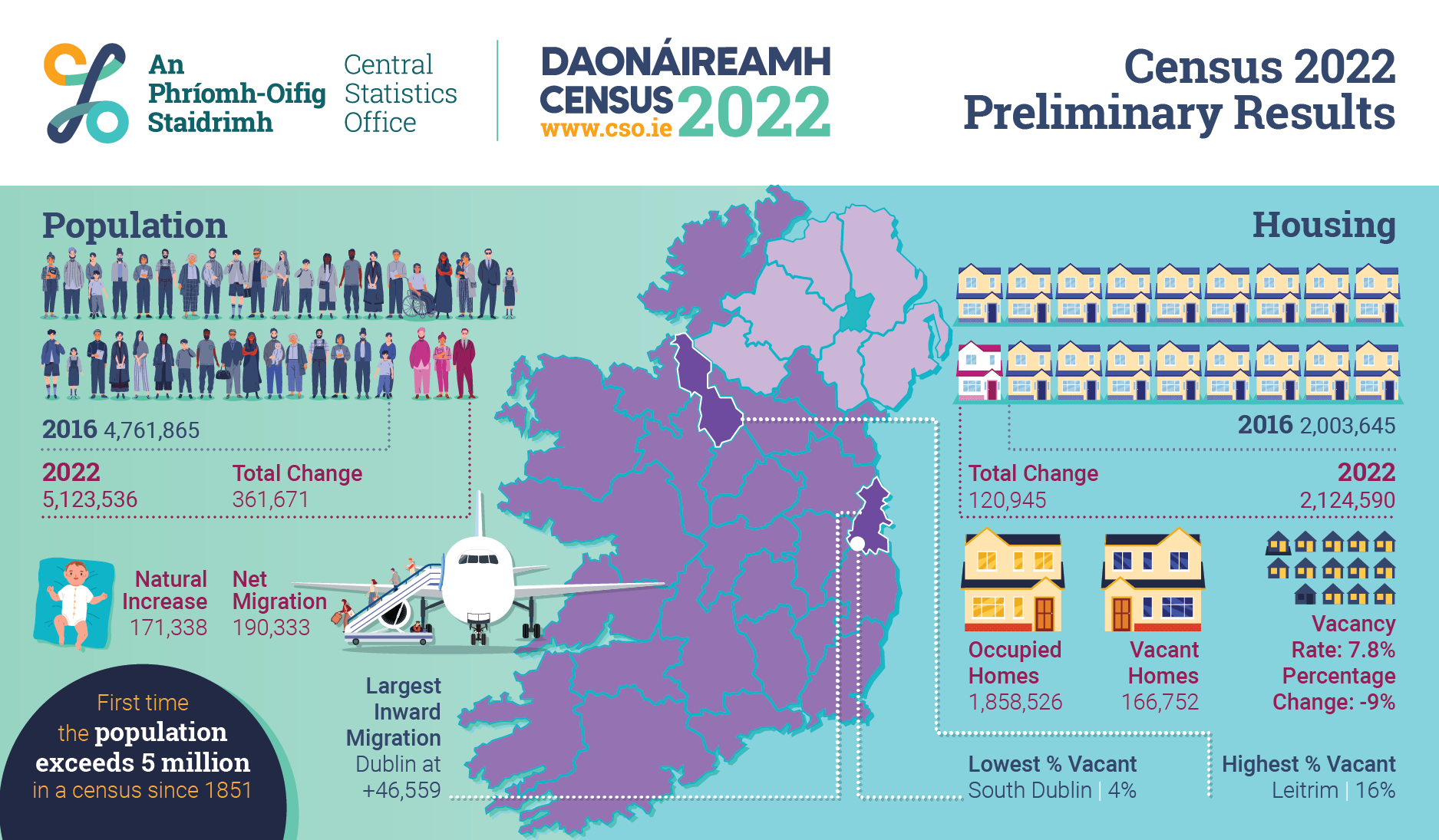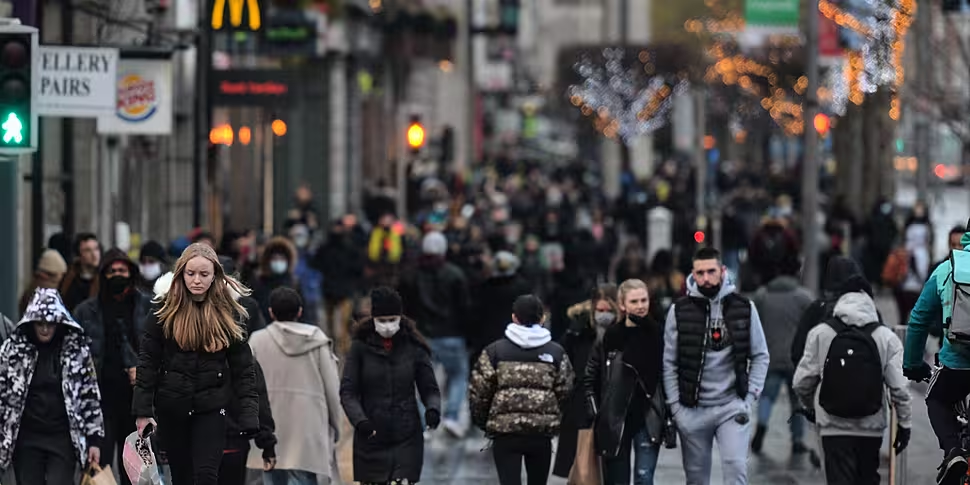Ireland has seen its population increase - but emigration has seen a fall in the number of people aged between 25 to 39.
That's according to Evelyn Mahon, Sociologist at Trinity College Dublin, who was speaking as preliminary results from Census 2022 show Ireland's population exceeded five million for the first time in 171 years.
The overall population growth of 361,671 was made up of a natural increase - or births - of 171,338, alongside positive net migration of 190,333.
Ms Mahon told Newstalk Breakfast these increases are likely down to workforce shortages.
"Over the last few years, we have seen population increases not derived from just increases in our birth rate, because our birth rate has actually been declining over time, but we have managed to attract other migrant groups from a variety of countries," she said.
"One of the biggest groups in Ireland now are the Polish community.
"They came when they were allowed to come - if you like - with the opening of our borders and the expansion of the European Union; many of those have gone back now.
"But we have, in more recent times, had to recruit people from various other parts".
 Source: CSO
Source: CSOMs Mahon said we have to consider more than just birth rates,
"It's very interesting to see now that we have, in recent years, an increasing number of Indians - who I think are probably largely recruited for the health [sector]," she said.
"To an extent, it's labour force demands here that are actually encouraging this diversity in our population.
Years ago, you just looked at the birth rate and the ageing profile... now it's a very different country.
"These are not what determine how our population's growing and how it's shaping up".
'Cohorts who never returned'
The Census also revealed that the highest increase in population was seen in the over-70s, at 26%, while there was a 4% fall in the number of people aged 25 to 39.
Ms Mahon said Ireland is actually missing a 'chunk' of its population.
"When we had the last recession... a lot of people emigrated then," she said.
"There are cohorts of the Irish population who never returned - so we are missing a chunk of 30 [to] 40-year-olds.
"Some of the earlier - the 50-year-olds - there was a huge wave of emigration among graduates who are now aged 50 abroad.
"At that stage we suffered an awful lot from emigration by Irish people.
"That has somewhat adjusted in very recent years... but that's why we have this uneven growth and decline.
"We are missing some chunks of people who emigrated when times were bad in Ireland".
Nursing and medicine
Ms Mahon said as Irish people leave, the country needs to backfill their absence.
"In nursing and medicine, for instance, a lot of Irish graduates are now working in Australia," she said.
"Whereas we are, in Ireland, recruiting medics and nurses from other countries to fill the vacancies we have in our health services.
"That's an interesting mix, and it happens I think as countries develop overtime," she added.









